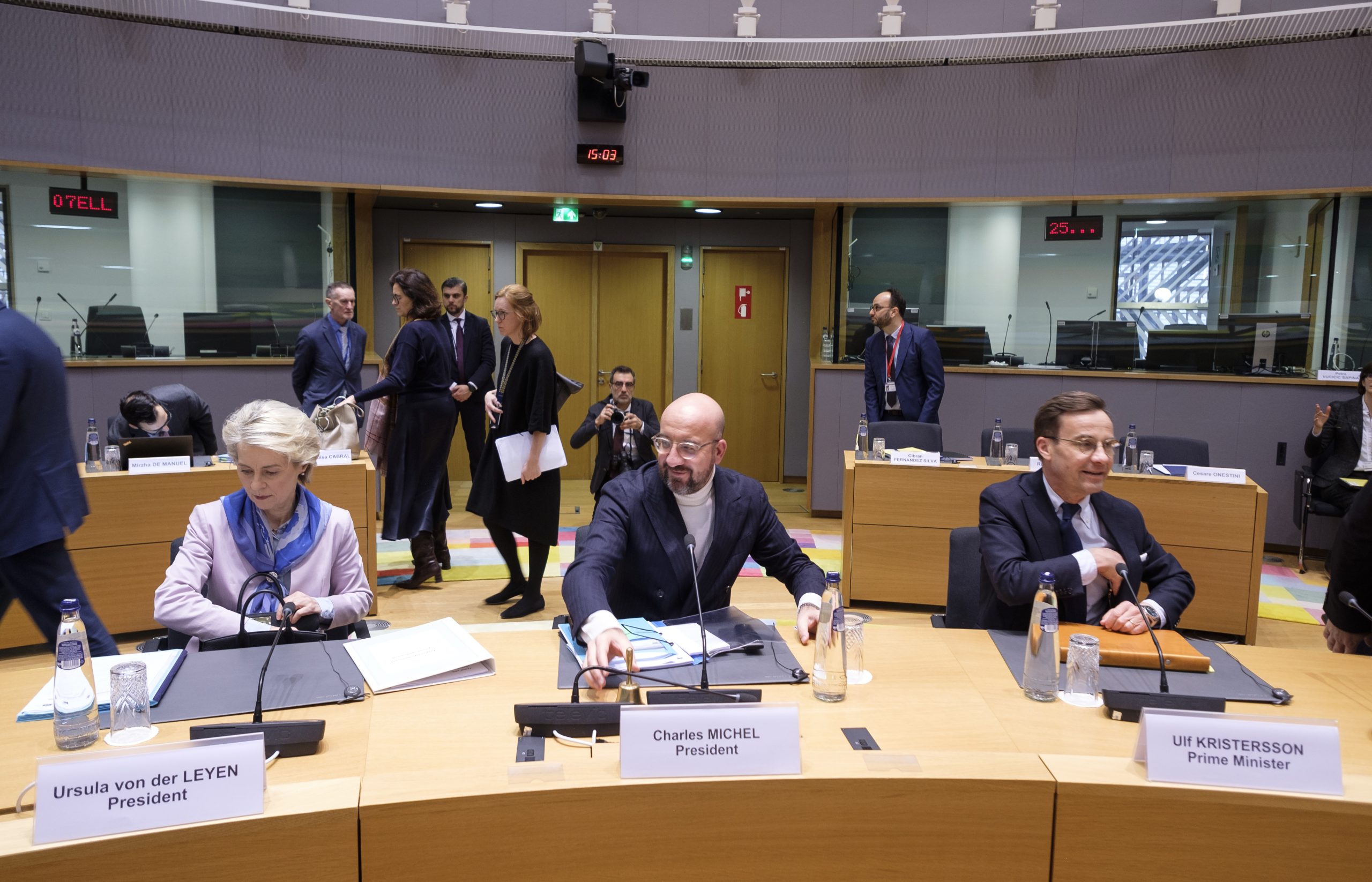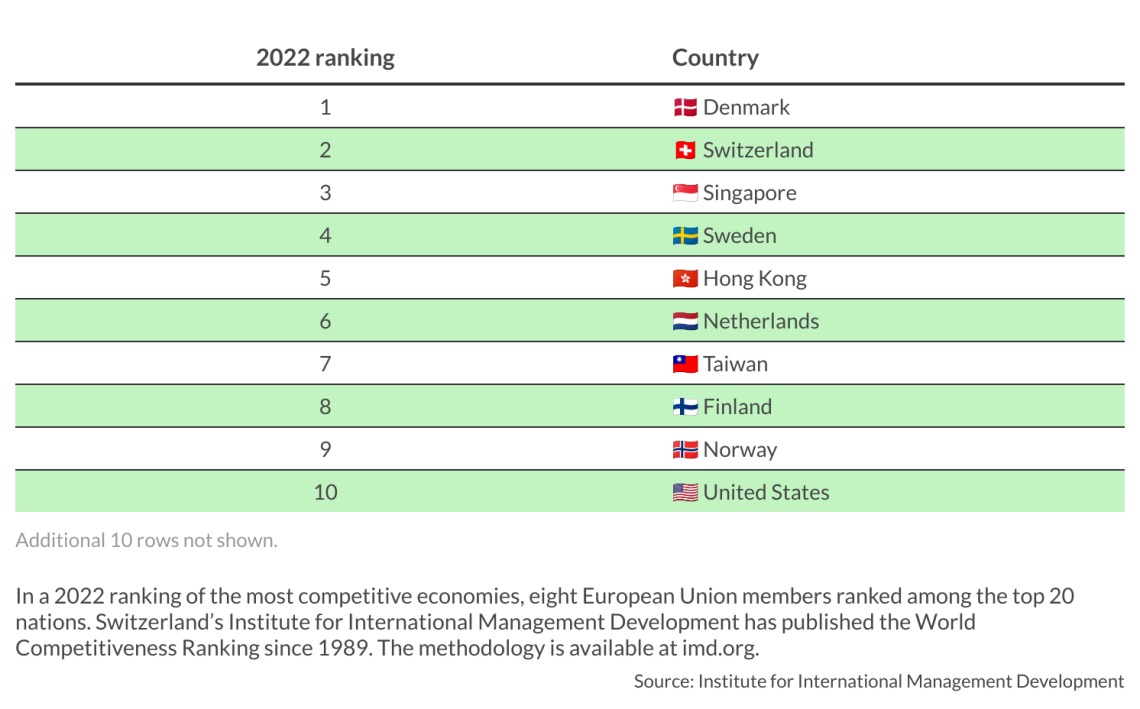The EU’s uncompetitive competition law
Undermining its goals of protecting consumers and free choice, Brussels has adopted a heavy-handed regulatory approach that may stifle innovation and competition.

In a nutshell
- Bureaucrats and technocrats are poor substitutes for entrepreneurs and innovators
- The European Commission is wary of both big corporations and potential newcomers
- If regulation becomes too overbearing, nations may opt for a decentralized approach
Competition law has become one of the main instruments through which the European Commission regulates the economies of the 27 European Union member states. The Commission has the power to deny the freedom of contract whenever a company reaps – or could reap – “excessive profits” by increasing its size or by colluding with other companies. By claiming that they are fighting against the producers’ real or potential “abuse of dominant position,” the regulators have the final word about mergers and acquisitions as well as pricing and sales strategies.
The EU authorities have repeated time and again that their goal is to enhance consumer welfare, that the lack of competition undermines consumers’ interests and therefore, the Commission must ensure that markets remain competitive. At first blush, this sounds fair and pleasant: we are all consumers, and we all believe that governments should protect our interests. Yet, economists often highlight three perspectives that reveal the flaws of the current approach.
The proper role of the state
One perspective emphasizes individuals’ voluntary interactions, rather than the class-struggle rhetoric that considers groups of people fighting against each other: consumers vs. producers, employers vs. employees, workers vs. unemployed, rich vs. poor, etc. From the individualistic perspective, policymakers should protect the freedom to act and choose, intervening only when an individual’s actions involve physical violence or fraud. A seller of goods and services should be free to negotiate the terms of the transaction.
The same should apply to the buyer. Buyers can accept or reject the seller’s proposals but cannot impose their terms upon sellers. Likewise, sellers cannot impose their terms upon buyers. Within this context, the task of the authority boils down to ensuring that all individuals enjoy the freedom of choice and of contract and that violence and fraud are banned. No more than that.
Regrettably, this is not what today’s EU competition law is about. Instead, it regulates firms’ freedom to associate, set prices, manage their intellectual capital (patents), deliver goods to potential buyers and design contracts (e.g., exclusive dealing agreements). Oddly enough, however, Brussels does not object when governments force taxpayers to buy goods and services that they do not consume or that they would rather buy from other suppliers. Moreover, regulators often do their very best to raise the cost of entry for potentially successful newcomers and sometimes keep alive bad companies that take market share from more efficient producers and keep new businesses at bay.
Also by Enrico Colombatto
Windfall-profit tax: A popular idea with bad consequences
The folly of regulating fairness
A second perspective comes from those who believe that competition is synonymous with social fairness, and that the benefits created by innovative entrepreneurs should be shared equitably among all economic actors: consumers/buyers and less successful producers. Those who advocate this approach claim that the principle of equity requires that the authorities enforce all transactions that benefit the buyers – and sometimes less efficient competitors – at prices no higher than those required to guarantee a fair profit. Not surprisingly, the regulator determines what fair profit is and how to calculate it. If necessary, the regulator is expected to introduce price caps, forced sales and prevent the producer from becoming more profitable, even if more efficient.
This is the current EU approach. Although the Commission usually refrains from imposing explicit, ex ante price caps, which are often easy to circumvent and difficult to enforce, it resorts to heavy fines on those who charge allegedly unfair prices or fail to share the benefits of innovation. By doing so, the Commission in fact applies ex post price caps (the ex post determined fair price and fair profit) and extracts substantial amounts from those who had failed to anticipate the regulators’ estimates. The latest example was the case against Google/Alphabet: Google had to settle for 4.1 billion euros for abusing its dominant position.
Facts & figures
The difficulties of social engineering
A third perspective tries to introduce a dynamic element: To enhance consumers’ welfare over time, innovators should enjoy adequate rewards, so that what consumers lose in the short run because of higher-than-cost prices is overcompensated by having better and cheaper products in the future. Of course, this is a difficult exercise in social engineering. The technocrat does observe current free-market prices and perhaps profits but can only guess the benefits of unfettered future innovation and the cost of restraining innovative energies (lower growth). Although measuring the alleged intertemporal social cost of profits is wishful thinking, these mental exercises are the basis of much of today’s college teaching in economics, which contributes to demonizing profits, encourages the notion that successful entrepreneurship is all but fraudulent and frequently provides a technocratic veil to support the social justice approach, which then looks almost “objective.”
Scenarios
What does all that mean for the economic future of Europe? There are two broad scenarios. One is characterized by the current belief that large companies are a major threat to social justice, and competition policy (legislation and enforcement) is a key instrument to neutralize their vicious power. Some large corporations can be tolerated for the sake of growth, especially if taxing them becomes a substantial source of revenue.
Of course, heavy taxation and regulation may induce some big businesses to leave the Old Continent, an exodus that would harm the prestige of the Commission and possibly raise a set of fundamental questions about EU goals and priorities. In recent years, however, Brussels has reduced this possibility by making life difficult for potential new entrants into the European market and de facto guaranteeing privileges to the incumbents. Thus, Europe is not necessarily going to lose the existing large producers.
Nonetheless, Brussels has given birth to a vicious circle. Efforts to ensure that the incumbent large corporations stay in the EU will probably call for new rules and subsidies to keep newcomers away. This is hardly pro-competition. Moreover, reliance on discretionary technocratic lawmaking will encourage innovators to develop their entrepreneurial energies away from the Old Continent and maintain in Europe their least profitable business units. Europe may end up having neither competition nor innovation.
By contrast, one can envision a different scenario, in which the social justice and technocratic approaches play a minor role, it is acknowledged that bureaucrats and technocrats are a poor substitute for entrepreneurs and innovators, and that wealth must be created before it can be redistributed.
Abolishing an entire directorate and pieces of legislation that date back to the 1957 Treaty of Rome is not realistic. Yet, one cannot help but notice that some member states are increasingly uneasy about some rulings of the Commission’s Directorate General for Competition, and are sometimes reluctant to enforce them. If this sentiment were to strengthen, one could imagine a silent drift toward a new, decentralized architecture in defense of competition, within which the Commission’s regulatory activity is somehow restrained by the national authorities, especially by those who believe that the freedom of choice and the freedom of contract are the key recipes to economic prosperity.









